A conversation with Ted Conover, master of immersive journalism
26. 1. 2023
10 min.
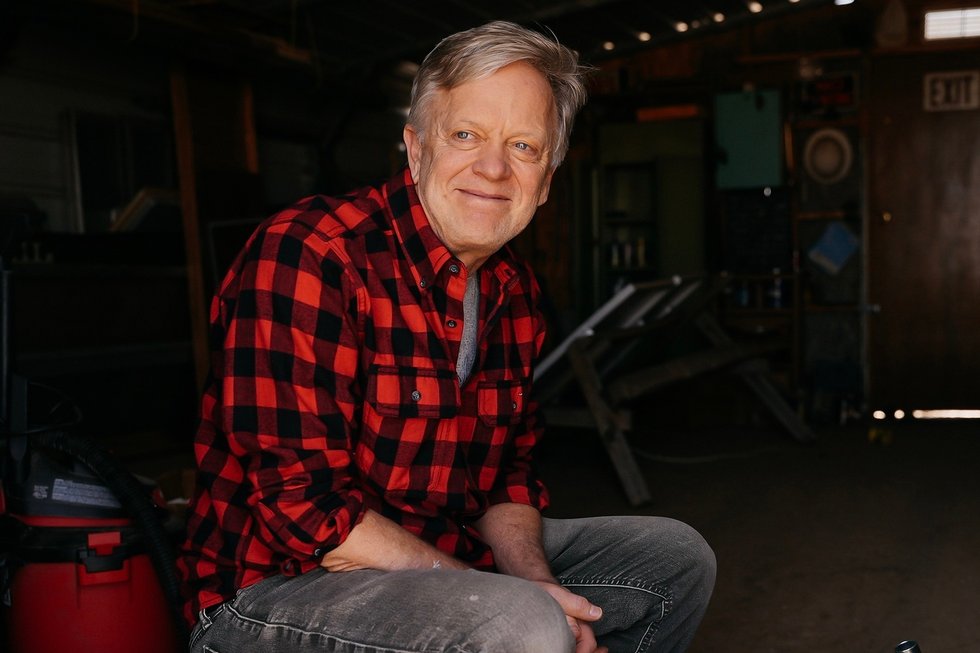
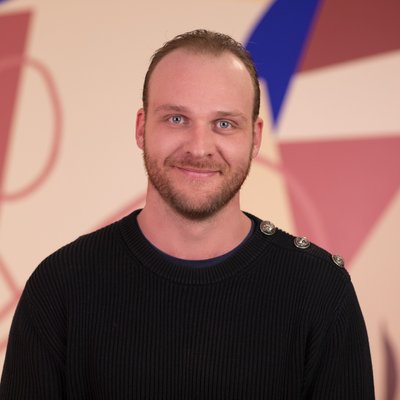
Journalist
Ted Conover is widely considered America’s reigning master of immersion reporting. During a career spanning nearly four decades, he’s gone undercover as a prison guard, inspected poultry as a USDA employee, crossed the border with Mexican refugees and hopscotched around the country as a railroad hobo.
Conover’s trademark style of writing, which straddles memoir, ethnography and journalism, has earned him the National Book Critics Circle Award and a place as a finalist for the Pulitzer Prize.
In his latest work, he joins a community of off-gridders on the plains of the American West, where disaffection and exile co-exist with perennial dreams of self-determination and starting fresh. “The American firmament was shifting in ways I needed to understand,” Conover writes in Cheap Land Colorado: Off-Gridders at America’s Edge. During five years’ time, roughly spanning the Trump administration, he explores a forgotten, cut-off slice of the country that reminds us both of the enduring force, and failure of, the American dream.
We spoke to Conover about his experience covering the fringes of American society, the changing landscape of journalism, social media, the financial challenges of young reporters today, and his experience as a teacher at New York University.
Let’s start off with some background and how you got into journalism. You studied anthropology I think?
Well before that, back in high school, I was among a small number of students who were bussed by court order from our neighborhood school to one where white people were in the minority. At the time, we had a lot of trepidation about it, but it turned out to be a good thing—and a great education. I often look back and think that I learned as many important things, things that have informed my career, as I did later in college and graduate school. You know, just the whole way in which your standing in society affects your understanding of it, how your group is decisive in so many ways, as well as the question of whether you can ever transcend your group and achieve some sort of larger understanding of the social world you’re in.
When I got to college and discovered anthropology, I was interested in some of those same questions — questions of people and groups and what we have in common, what we don’t, and the possibilities and limitations of crossing social borders and getting to know somebody else. Somebody unlike you.
I think anthropology showed me the way to a deeper kind of journalism, one that can transcend the five Ws. It also showed me the importance of trying to achieve some objectivity about your point of view, or — perhaps a better way to put it — the subjectivity of all points of view.
That is very much a part of anthropology, and as I continued my career, it seemed to become more and more a part of my journalism. Over the years, journalists have stopped aspiring to pure objectivity and trying more to be fair. We’re trying to be transparent about where we’re coming from.
You mention early on that part of what drove you to write this book was the 2016 election. As I understand it, you wanted to better understand why so many people feel… perhaps “cut off” from society. Did you come to any kind of conclusion?
As I write in the book, there’s a myriad of reasons that people move out into the prairie, to this off-grid place — many more reasons than I would have guessed. But one thing they have in common is disaffection. To want to live like that, I think you have to be tired of trying to do what you’re supposed to, you have to be tired of the normal kind of workweek and the normal kind of job, which I think has left many feeling poor and alienated. I think a lot of them have failed to make ends meet with the kinds of jobs they’re able to get. They’ve lost houses. They’ve lost loved ones. There’s often a sense of personal failure that sends people out there.
But then there’s a more positive side, and that’s the idea of ownership. It’s the fact you can buy your own land, which gives you this real autonomy, right? Even if you don’t have much money to spend, even if you have to live in the most humble way possible, at least you’re making decisions about when the heat comes on in your room, for example, about how you’re going to keep warm when it gets cold. It’s about self-sufficiency and self-determination.
One of the commonalities between your books, as several critics have pointed out, is that you approach your subject with a certain openness. There’s a reliable absence of judgment…
I worked for an outreach group out there called La Puente, which tries to keep these off-gridders from becoming homeless when the weather gets cold. I liked their approach, and I learned a lot from them about listening and not judging. The fact is that we live in a very stratified world. We judge each other in so many ways — from income and education to politics and ethnicity. There are just so many ways people size each other up. And many people on the prairie really do feel a stigma that stems from not being able to keep clean because they don’t have much water, or not having teeth. A lot of them have lost their teeth. They of course believe that the more prosperous people in the nearby towns look down on them — and they’re right. So the prairie becomes a place where they’re free from judgment.
Essentially, passing judgment on people like that gets in the way of helping them and understanding how they ended up there. That’s kind of the posture I take when I’m reporting a book like this: I try to position myself as a student, learning from somebody who knows the things I want or need to know. For example, when I was trying to make my own household out there, I needed to know how to keep warm at night, how to keep the water from freezing, how to keep safe. Do I need a gun? And of course I’ve got all these strikes against me in their eyes: I’m from New York, I’m a professor and — probably worst of all — I’m a journalist. But by spending time with them and showing I was sincerely interested in learning, I was able to make some connections.
Do you think we judge more now than before? I mean, we frequently hear about our society becoming more polarized. But are we? Or has social media just put it on greater display?
That’s such an interesting question, and one I don’t know the answer to. In a sense it would seem that way, you know, at least in the world I’m a part of in New York. But I also think the world I’m a part of in Colorado is more accepting of people’s differences than ever before. Out on the prairie, 50 years ago, there wouldn’t have been the kind of acceptance you see today of gay people or just people who aren’t on the gender binary. I’ve never heard those people mocked out there.
So I think in a way, society is moving forward. But on the other hand, yeah, there’s this huge political gap and social media is partly to blame. But there are also mainstream politicians who – until the rise of Trump – didn’t listen to many of the voices in society. Who were simply not interested in knowing more about the people Hillary Clinton called the basket of deplorables, if you remember that. Language like that is divisive and unhelpful.
I agree. It seems, in both Europe and the US, we’re making pretty amazing progress when it comes to identity, race and inclusiveness. But perhaps one major difference is, unlike many countries in Europe, I often experience a reluctance in America to talk about class.
I think you’re right. In fact, I think class distinctions seem to be getting worse in the United States. Or rather, the gap between the very poor and very rich is broader than ever before, mostly, I think, because there’s so much concentration of wealth at the high end.
On that note, back in journalism school, I took a narrative writing class with Dale Maharidge, who I think has a somewhat similar reporting style to yours. I liked the class as it was also a sort of life-hacking course, with tips and tricks about how to construct a life as a writer. I think he’d picked up on the fact that some of the old career avenues are closed to journalists today, and perhaps especially if you’re looking to do longform stuff, the economic barriers are higher than before.
Yeah, I think the changes since I began have made it harder to do the kind of thing I do or what Dale does. To grow as a longform writer you need places to publish. Of course, the rise of the internet means you can now publish however long stories you want. But then there’s the new calculus: Can you get people to pay you for it and can you get readers? When Dale and I started out, those things went together. If you got a long piece published, people were going to read it.
Today, most of my students who head into journalism get jobs in the digital sphere where they’re typically under a lot of deadline pressure and constantly need to be on call. And that’s a real challenge; how do you find the time and space to turn off the noise, develop your own thoughts and cultivate your own projects? It’s definitely gotten harder.
But one thing I’ve always done to make ends meet is work where I write, as I did for my book Newjack when I got a job as a correction officer at Sing Sing prison. That actually paid me a salary and got me benefits. Or when I wrote my book on Aspen, I got a job as a cab driver and worked at the local paper on a temporary basis. Other projects haven’t been very expensive to report, like riding freight trains when I was writing Rolling Nowhere. But yeah, writing books, whether fiction or nonfiction, has always been a tenuous economic proposition, and there’s no question that people who aspire to do longform writing today will have to find new ways to support themselves.
Have you considered writing fiction yourself?
I have—stories are my thing. But I have yet to finish a piece of writing that I like.
Spending months, or years, reporting a story as an immersive journalist, does it get lonely? I guess you’re always surrounded by people, but they’re not necessarily close friends.
Loneliness has definitely been a problem—in the years before I was married, mainly. I frequently got lonely. In fact, a number of the sort of immersive experiences I’ve had would have been hard to manage without a partner to lean on. So apart from all the economic challenges of this work, there are emotional ones. They are particularly acute with undercover reporting, such as I have practiced for my book Newjack, or for an article I did in Harper’s Magazine about becoming a government meat inspector. It’s a big emotional challenge not to be able to connect with your coworkers in a healthy way. Withholding basic facts about yourself and your activity is isolating and difficult.
I guess with the internet, and social media in particular, public criticism, or even shaming and aggression, are additional factors that have made the profession more challenging. I have several colleagues who have chosen not to tackle topics they’re passionate about, fearing online harassment and condemnation.
Yes, I’d say that’s harder today, and I think it’s smart to worry about it to some extent. But at a certain point you have to realize that some journalism is going to upset some people. Even truthful, ethical journalism will bring out those who disagree. Where that becomes a serious problem is when it turns toxic, and I know some of my female colleagues and students have a rougher experience than men do. A lot of the trolls seem to go after women, so I think women often have to be extra careful in terms of privacy or sharing personal details. There are malevolent forces out there.
I believe your resume would appear somewhat intimidating to a lot of journalists. Are there any failed projects you’d like to share to make us feel better?
Good Lord, I have a whole file cabinet full of ideas that didn’t work out — and many of them didn’t work out for a good reason. All I can say is that I’ve had more bad ideas than good ones, no question about it. I won’t embarrass myself by going into details in the short amount of time we have. But, you know, part of finding a good idea is considering bad ones, since brainstorming or just thinking creatively by its nature involves dead ends. It involves ideas that in retrospect, don’t look so good.
The process is all about taking a chance. And part of that, one of the chances you take, is the chance of looking a little bit foolish for having had a particular idea. But you have to do it; there’s no way around it. Hopefully, you have some friends or advisors who can tell you if you’re on the wrong track. We all need a sort of panel of advisors to help, to help us in our quotidian ambitions. Is this interesting? Is this a good idea? And you especially need a couple of those people who can tell you: no, that’s not a good idea.
On a last note I want to ask about your students. I’ve interviewed other professors who’ve pointed out that they’ve seen a shift in mindset, with younger pupils being more value and purpose-oriented than before. Is this a shift you’ve experienced?
I think there’s always been an altruistic element to the desire to pursue journalism; the idea that that — possibly — this could end up doing some good in the world. But a change I’ve noticed in the last few years is my students being more cooperative and mutually supportive of each other, which has been a lovely thing to find because a lot of my education took place in this sort of cutthroat, competitive atmosphere. Now I see students trying to help each other with their reporting and pretty much everything else, and I think it’s a really good sign. Have you noticed that as well?
I have. And I’ve been surprised to have found so many online groups where journalists aren’t only posting job ads but sharing their networks and giving each other advice and support. Say what you want about social media, but I’ve definitely found a lot of generosity in those groups.
Yes, and it’s happening in a digital landscape where there are, in fact, more solo practitioners, right? People doing their Substack and who aren’t in a newsroom with other journalists. But somehow there seems to be an underlying esprit de corps… a sense of shared enterprise and shared values. While I don’t understand all of it, I feel it’s a harbinger of something good. And that’s especially important as I believe that journalism, in order to remain vital, needs to reinvent itself. Every generation has to find its own path, and we’re in the middle of a period of upheaval and reinvention.
The interview has been edited for length and clarity
Photo by Jon Cohrs
Follow Welcome to the Jungle on Facebook, LinkedIn, and Instagram, and subscribe to our newsletter to get our latest articles every day!

Viac inšpirácie: Inšpiratívne príbehy
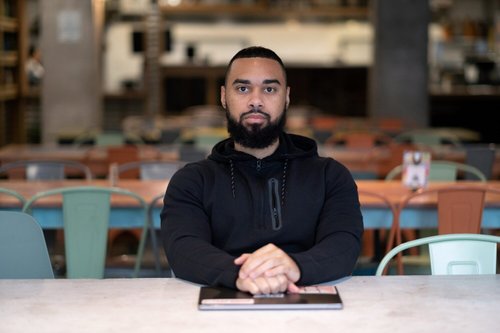
Be real, get ahead: The power of authenticity in your career
Pabel Martinez shares insights on how to allow yourself to be yourself, find your voice, and deconstruct stereotypes at work.
25. 4. 2024
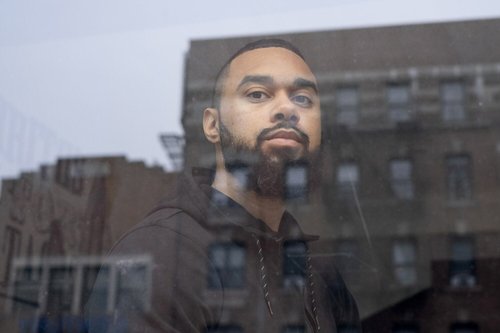
The professionalism paradox: Navigating bias and authenticity with Pabel Martinez
Pabel Martinez challenges the conventional norms of professionalism by unraveling the complexities of workplace discrimination.
11. 3. 2024
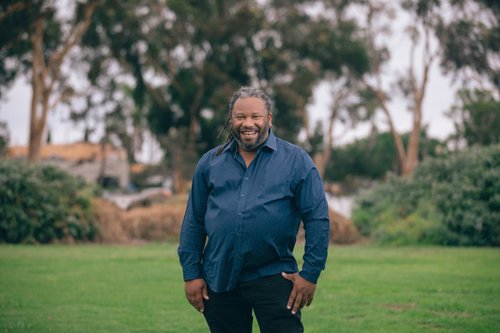
How play can make you happy, creative and productive at work
Work-life balance usually means separating work and play, but it might be a better marriage than you think...
07. 11. 2023
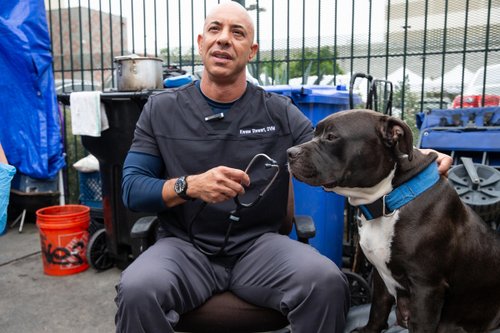
Project Street Vet: Caring for the unseen paws of Skid Row
Providing vet-to-pet care in some of California's largest homeless communities, Dr. Kwane Stewart shares the ups and downs of his remarkable work.
29. 8. 2023
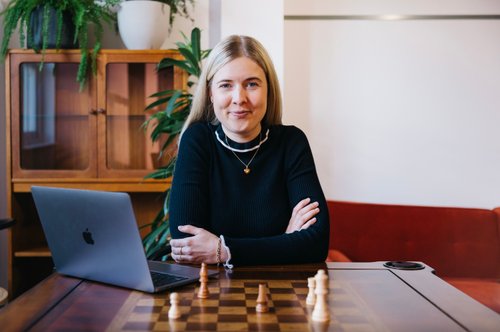
Girls learn how to have fun – and funds – by investing
A Danish trio is fighting gender inequality... on the stock market. We had a chat with one of the co-authors of the book Girls Just wanna Have Funds
30. 1. 2023
Novinky, ktoré to vyriešia
Chcete držať krok s najnovšími článkami? Dvakrát týždenne môžete do svojej poštovej schránky dostávať zaujímavé príbehy, ponuky na práce a ďalšie tipy.

Hľadáte svoju ďalšiu pracovnú príležitosť?
Viac ako 200 000 kandidátov našlo prácu s Welcome to the Jungle
Preskúmať pracovné miesta